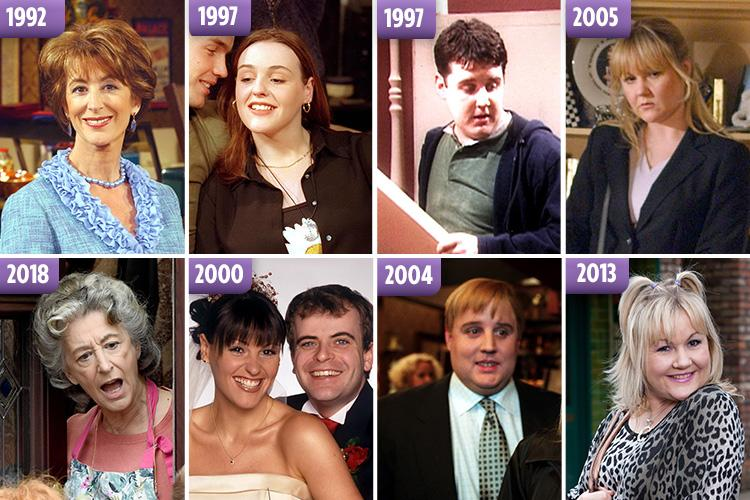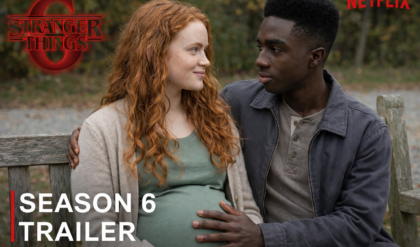Coronation Street, the beloved British soap opera, has been a cornerstone of television since its debut in 1960. Airing on ITV, it’s the longest-running soap opera in the world, captivating audiences with its gritty realism, relatable characters, and gripping storylines set in the fictional working-class town of Weatherfield. Over its six-decade run, the show has introduced hundreds of characters, but some have left an indelible mark on viewers, becoming cultural icons. A definitive ranking of the top 25 characters of all time showcases the heart, humor, and drama that make Coronation Street a phenomenon. Here’s a deep dive into why these characters resonate, enriched with context from the show’s legacy and fan reactions.

At the pinnacle of this ranking is Hilda Ogden, the quintessential Corrie matriarch. Played by Jean Alexander from 1964 to 1987, Hilda was the nosy yet warm-hearted cleaner whose curlers and gossip became synonymous with the show’s working-class roots. Her life in No. 13 Coronation Street, alongside husband Stan, was filled with financial struggles and domestic squabbles, yet Hilda’s resilience shone through. Her emotional farewell, moving to the countryside after Stan’s death, remains one of the show’s most-watched episodes, with over 26 million tuning in. Hilda’s blend of humor and heartbreak made her a fan favorite, embodying the show’s ability to find beauty in the mundane.
Following closely is Bet Lynch (Julie Goodyear), the brassy barmaid with a heart of gold. From 1966 to 2003, Bet’s leopard-print outfits and beehive hairdo made her a style icon, while her turbulent love life and loyalty to the Rovers Return pub cemented her legacy. Bet’s journey from barmaid to landlady reflected her ambition, but her vulnerability—seen in failed romances and financial woes—made her relatable. Fans still celebrate her larger-than-life personality, which brought glamour to Weatherfield’s cobbles.
Ken Barlow (William Roache), the only character present since the first episode, ranks high for his enduring presence. A teacher with intellectual aspirations, Ken’s life has been a rollercoaster of marriages, affairs, and family drama. His on-off romance with Deirdre Hunt and rivalry with Mike Baldwin are etched in Corrie lore. Ken represents the show’s evolution, adapting to changing times while remaining a moral anchor, even if his decisions sometimes sparked controversy among viewers.
Elsie Tanner (Pat Phoenix), the original Corrie siren, captivated audiences from 1960 to 1984. With her fiery spirit and countless romances, Elsie was Weatherfield’s answer to Elizabeth Taylor. Her tumultuous marriages and fierce independence made her a trailblazer, challenging stereotypes of women in the 1960s. Elsie’s exit, driving off into the sunset, was a fitting end for a character who lived life on her terms, leaving fans yearning for more.
Ena Sharples (Violet Carson), the hairnet-wearing moralist, rounds out the top five. From 1960 to 1980, Ena was the street’s conscience, dispensing wisdom and judgment from her perch in the Rovers’ Snug. Her clashes with Elsie and devotion to her faith made her a complex figure, blending sternness with compassion. Ena’s iconic status lies in her ability to reflect the community’s values, making her a timeless symbol of Corrie’s early years.
Other notable characters include Deirdre Barlow (Anne Kirkbride), whose glasses and husky voice became iconic. Her love triangle with Ken and Mike Baldwin in the 1980s gripped the nation, with billboards famously urging “Free Deirdre” during her wrongful imprisonment. Stan Ogden (Bernard Youens), Hilda’s lovable but lazy husband, charmed with his hapless antics, while Jack and Vera Duckworth (Bill Tarmey and Liz Dawn) were the ultimate Corrie couple, their bickering and devotion capturing the essence of enduring love.
Villains also shine in the rankings. Alan Bradley (Mark Eden) terrified viewers as Tracy Barlow’s manipulative stepfather, his death under a Blackpool tram a shocking climax. Richard Hillman (Brian Capron), the suave financial advisor turned serial killer, brought Hollywood-style suspense to the cobbles in the early 2000s, his murderous spree culminating in a canal plunge that had audiences on edge. These antagonists added thrilling stakes, proving Corrie could blend domestic drama with high-stakes tension.
Younger characters like Gail Platt (Helen Worth) and Roy Cropper (David Neilson) also make the list. Gail’s chaotic love life and family dramas, including her marriage to Richard Hillman, have kept her central for decades. Roy, the quirky café owner, won hearts with his kindness and unlikely heroism, especially in his marriage to Hayley, Corrie’s first transgender character. Hayley Cropper (Julie Hesmondhalgh) herself ranks high, her groundbreaking storyline tackling trans issues with sensitivity and paving the way for inclusivity in soaps.
The rankings reflect Corrie’s ability to evolve. Characters like Becky McDonald (Katherine Kelly), with her troubled past and fiery spirit, and Carla Connor (Alison King), the businesswoman battling addiction and tragedy, represent the show’s modern era. Steve McDonald (Simon Gregson) and Liz McDonald (Beverley Callard) bring humor and heart, their tangled family dynamics fueling countless storylines. Even Rita Tanner (Barbara Knox), the newsagent with a sharp tongue and soft side, remains a fan favorite for her resilience through loss and betrayal.
What makes these characters stand out? Corrie thrives on relatability, and each figure mirrors real-life struggles—love, loss, ambition, and redemption. Hilda’s scrimping resonates with anyone facing hard times; Bet’s flamboyance inspires those chasing dreams against the odds. The show’s setting, with its terraced houses and cozy pub, grounds these stories in a tangible world, while the writing balances humor and pathos. Web searches reveal fans on platforms like X praising Hilda’s authenticity and Richard Hillman’s chilling charisma, showing how these characters spark ongoing debates.
The rankings also highlight Corrie’s cultural impact. The show has tackled taboo topics—Hayley’s trans identity, Deirdre’s domestic abuse, Carla’s mental health—with courage, shaping public discourse. Its characters are more than fictional; they’re part of viewers’ lives, with fan campaigns and memorials (like Hilda’s mural in Manchester) proving their lasting influence. The diversity of the top 25, from Ena’s old-school morality to Becky’s chaotic energy, reflects Corrie’s broad appeal, bridging generations.
Behind the scenes, the actors’ performances elevate these roles. Jean Alexander’s nuanced portrayal made Hilda unforgettable, while Brian Capron’s chilling Richard Hillman still gives fans chills. The show’s commitment to long-term storytelling allows characters to grow, with Ken Barlow’s arc spanning over 60 years. This depth keeps viewers invested, as seen in fan forums where debates over “best character” rage on, with Hilda, Bet, and Elsie often topping polls.
Corrie’s top 25 characters are a testament to its storytelling prowess. They’ve laughed, cried, and fought on the cobbles, reflecting the human condition in all its messy glory. From Hilda’s curlers to Richard’s sinister smile, these figures have shaped a cultural juggernaut. As the show continues, new characters will emerge, but these icons—rooted in Weatherfield’s heart—will always hold a special place. Whether you’re a lifelong fan or a newcomer, their stories offer something universal: the power of community, resilience, and the enduring drama of everyday life. So, grab a pint at the Rovers and toast to Coronation Street’s greatest—because their legacy is still writing itself.





